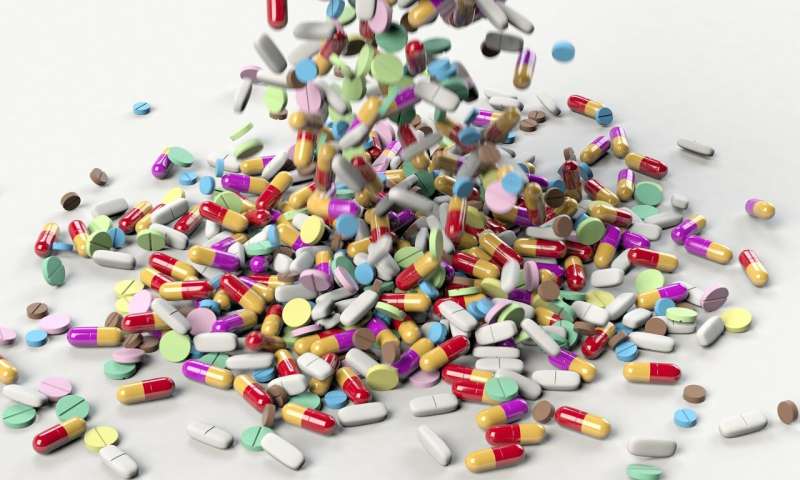This article has been reviewed according to Science X's editorial process and policies. Editors have highlighted the following attributes while ensuring the content's credibility:
fact-checked
peer-reviewed publication
trusted source
proofread
Industry payments to physicians linked to use of some non-recommended and low-value drugs among cancer patients

Patients with cancer whose oncologists receive payments from industry appear more likely to receive some non-recommended and low-value treatments, finds a US study published by The BMJ today.
This finding raises potential concerns about quality of care, and the researchers say it may be appropriate to re-examine the current status of personal payments from the drug industry to physicians.
Research shows a consistent link between industry payments and prescribing behavior, but whether payments to physicians have positive or negative consequences for patient care has not been evaluated empirically, say the researchers.
To explore this further, they identified Medicare claims data for patients with a new cancer diagnosis during 2014-19 who were at risk of receiving one of four non-recommended (discouraged by guidelines) or low-value (providing no incremental benefit while being more expensive) drugs.
The two non-recommended drugs were denosumab, a bone modifying drug for castration sensitive prostate cancer, and granulocyte colony stimulating factors (GCSF) to prevent neutropenic fever in patients receiving chemotherapy. The two low-value drugs were nab-paclitaxel instead of paclitaxel for patients with breast or lung cancer, and use of a branded cancer drug when generic or similar versions are available.
The researchers then used Open Payments (a database of financial relationships between companies and physicians) to identify each patient's assigned oncologist, noting any payments they had received from the manufacturer of the four drugs in the year before the patient's diagnosis.
The results show that the proportion of patients who received non-recommended denosumab within six months of their diagnosis was 31.4% for those whose oncologists had not received payment and 49.5% for those whose oncologists had. The corresponding values were 26.6% v 32.1% for GCSF, 7.3% v 15.1% for nabpaclitaxel, and 88.3% v 83.5% for branded drugs.
After taking account of patients' characteristics including age, pre-existing conditions, and income, payments from industry were associated with a 17.5% greater use of denosumab, a 5.8% greater use of GCSF, and a 7.6% greater use of and nab-paclitaxel, but lower use of branded drugs (−4.6%).
Smaller effects were seen after further adjusting for physicians' characteristics including specialist area and practice setting. For example, payments from industry were associated with a 7.4% greater use of denosumab and a 1.7% greater use of nabpaclitaxel, but not with GCSF or branded drugs.
This is an observational study, so can conclude only an association between industry payments and prescribing, and cannot infer causality, and the authors note that misclassification in claims data and their focus on a narrow group of patients and interventions may have influenced their results.
However, they say the influence of industry payments on physicians' behavior is well-established, and this study suggests that this influence has the potential to negatively impact the care of individual patients.
Given the potential concerns for care quality raised by this study, it may be appropriate to re-examine the current status of personal payments from the drug industry to physicians, they write. Additionally, they say further research is needed to better characterize whether and to what degree the observed association between payments and poorer care quality extends to other settings.
More information: Pharmaceutical industry payments and delivery of non-recommended and low value cancer drugs: population based cohort study, The BMJ (2023). DOI: 10.1136/bmj-2023-075512



















